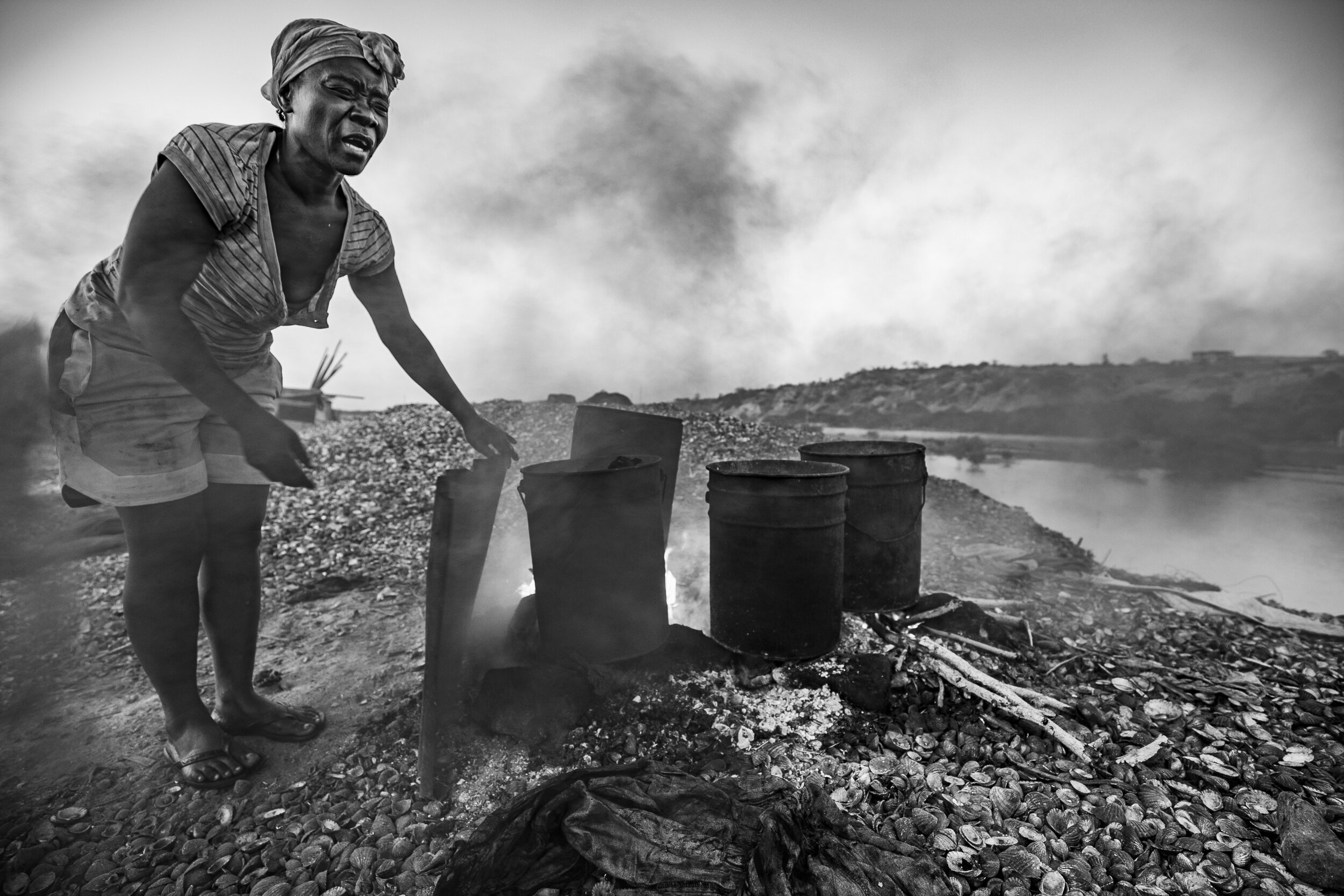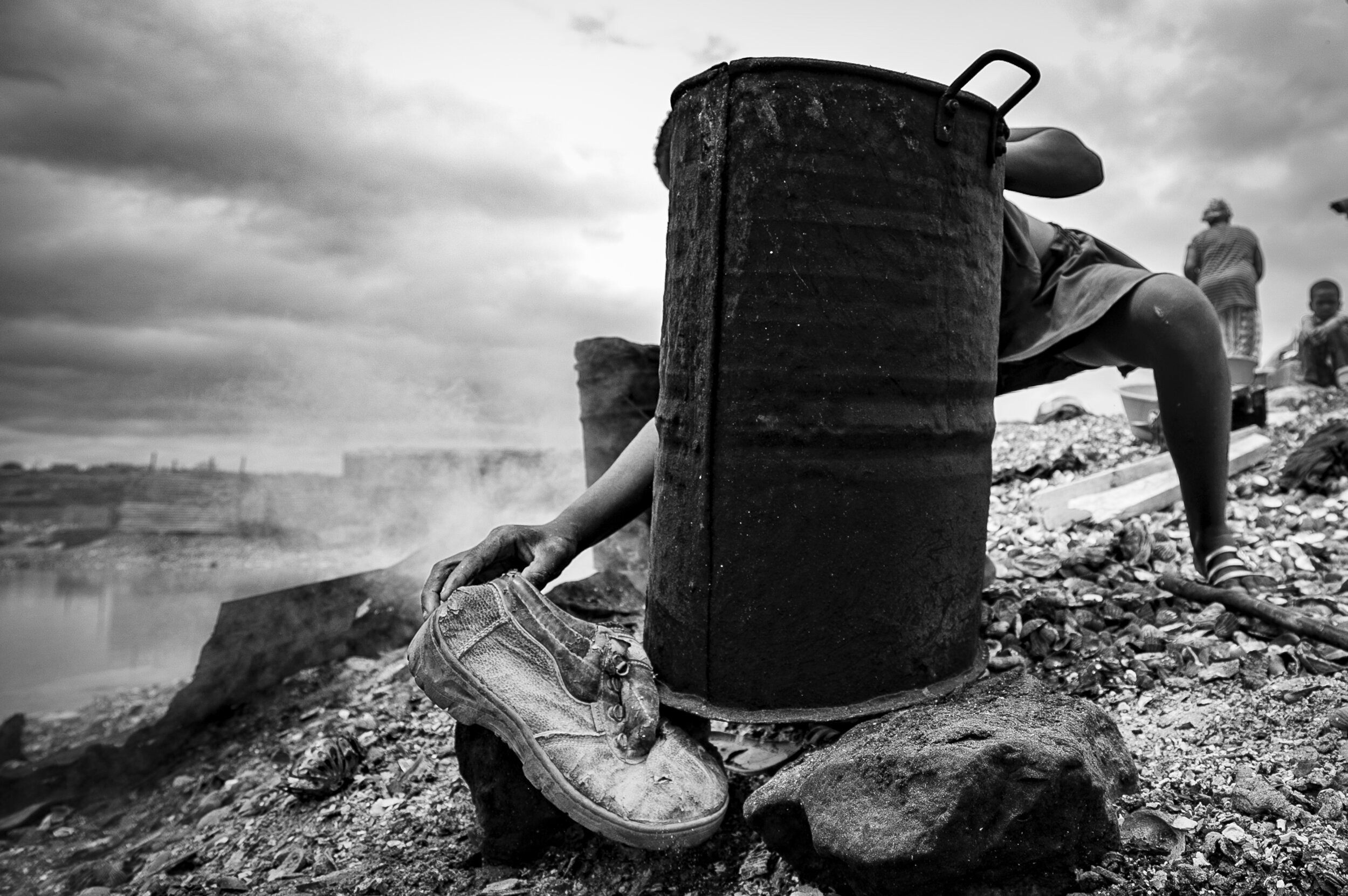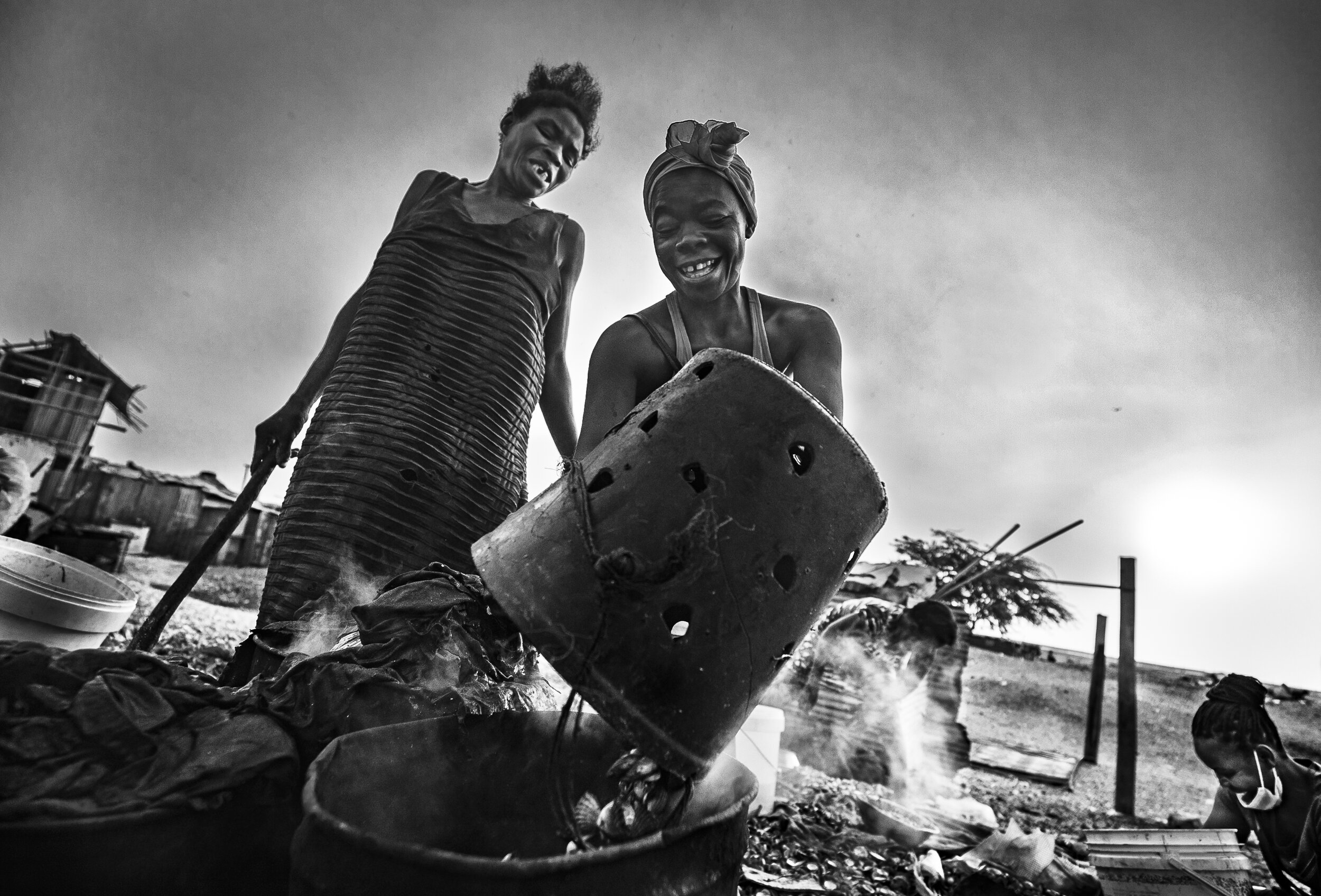Lighting the fire
by João Coelho
This is a story made up of women. These are women whose lives and stories have always attracted me and for whom I have an enormous respect and admiration. The short documentary that I bring here is just one episode, one part of the great story that takes place on this remote beach on the outskirts of the capital of Angola. Here, women show everyday how strong, resilient and bonded they are, even in the greatest of adversities
Continuing a knowledge and a destiny that passes from mothers and grandmothers to daughters and granddaughters, these women work from sunrise to sunset on the horizon, breaking shells from mabangas, a clam-like mollusk that is common on the West African coast and is much appreciated as an appetizer or accompaniment to "pirão," a kind of mash made from mashed cornmeal or cassava flour that is the basis of the Angolan diet.
They use a railroad screw to break the shells of the mabangas and extract the precious mollusk. After tens of years of breaking each of the mabangas shells, the landscape has been completely shaped by this work. Huge mountains of empty shells rise up on the beach where it all began and where competition among the women has forced the younger ones to colonize other beaches nearby. This story takes place on one of these beaches, where the sand is no longer visible, only a sea of empty shells stretches out to the real sea, the one made of water. Certainly, new mountains will rise in this sea because the destiny of these women is written at their birth: they are women of the Mabangas, from birth until they die.
The work here is not just about breaking the shells, the vast majority of women also have to divide their energy and attention to take care of their children. It is also the women who negotiate the best price to buy the mabangas from the fishermen who bring them in from the sea, amidst a shouting and signaling that only they understand. After closing the deal they have to carry the heavy bowls on their heads from the water line to the top of the hills where they sit in family groups to break the shells. Like art and fate, women also inherit the places where they sit from their grandmothers and mothers. It is common to see three generations of women working at the same site for more than 10 years, gathered in a circle around the shell booty.
During the day, the mabangas are broken and sold raw, but as the day comes to an end, the bustle begins to boil the ones they couldn't sell or the ones that will have to be kept until the next day to prevent them from spoiling. This is where this story begins, and this is also where a new business is born on the beach: the sale of charcoal, firewood, pieces of plastic and old shoes collected from the town's garbage dumps to start the bonfires. By the time the plastics and shoes reach this beach, they have come a long way and their price has been inflated by more than one intermediary, the garbage scavenger, the man who transported the cargo, and finally the one who controls the business here on the beach. But this is a necessary cost for the women, this is the only way they can light their fires.
With an impressive dexterity, they manage to light a fire with a handful of sticks, after blowing out the tiny ember that has just lit itself. Thicker sticks are arranged on top, and plastic and shoes eventually spark strong, long-lasting flames. The burning of plastics and rubbers from shoes thickens the evening on the beach, spewing heavy, toxic fumes into the air that stubbornly refuse to leave the earth and the lungs of these women. The dominant color is dark grey, in the atmosphere, on the clothes and on the skin of the women as they swallow this smoke around the bonfires. Tiredness also hovers in the air, and not even the colorful flames of the fire can disguise the color of these women's souls, also heavily grey. Despite being plunged into this almost post-apocalyptic environment, they have enough spirit and strength to show smiles, to play and help each other.
Strong arms and a resistance that insists on not giving up after a day of hard work, carry heavy bowls of mabangas to the iron pots placed on top of the bonfires. After they are filled, they pour in some seawater and cover them with rags that are so old that it is impossible to distinguish their color. A kind of mental clock, made from years of experience, tells them when it is necessary to stir the pot with a stick to ensure an even cooking, and when it is finally ready. Again, another tremendous effort, now to dump the cooked mabangas in the heavy iron pots onto nets and cloths laid out on the empty skeleton sea of mabangas. This is the work that is already promised for the next day, as soon as the sun begins to rise on the horizon, a day that will be just like all the others.
When will the day come when the sparkle in these women's eyes will not just be a reflection of the fires they lit on this beach?
João Coelho was born in Angola in 1964 but was forced to leave his country at the beginning of his adolescence, due to the War of Independence. He has spent most of his life in Portugal; Returning to native Angola only in 2007. João's interest in photography was dormant for many years, until 2018. Finally, working as a consultant of projects in the public sector, he found his motivation to pick up the camera again, to respond to the emotional and sentimental attraction for that land that he left in a brutal way at the beginning of adolescence.
João Coelho is a true documentary photographer. He works on projects calmly, without haste, never satisfied with them. The choice of the lens, a deep wide-angle, the violent but perfect contrast of black and white, and above all the photographer's ability to coexist with his protagonists, becoming part of them, almost invisible, giving life to this wonderful testimony































